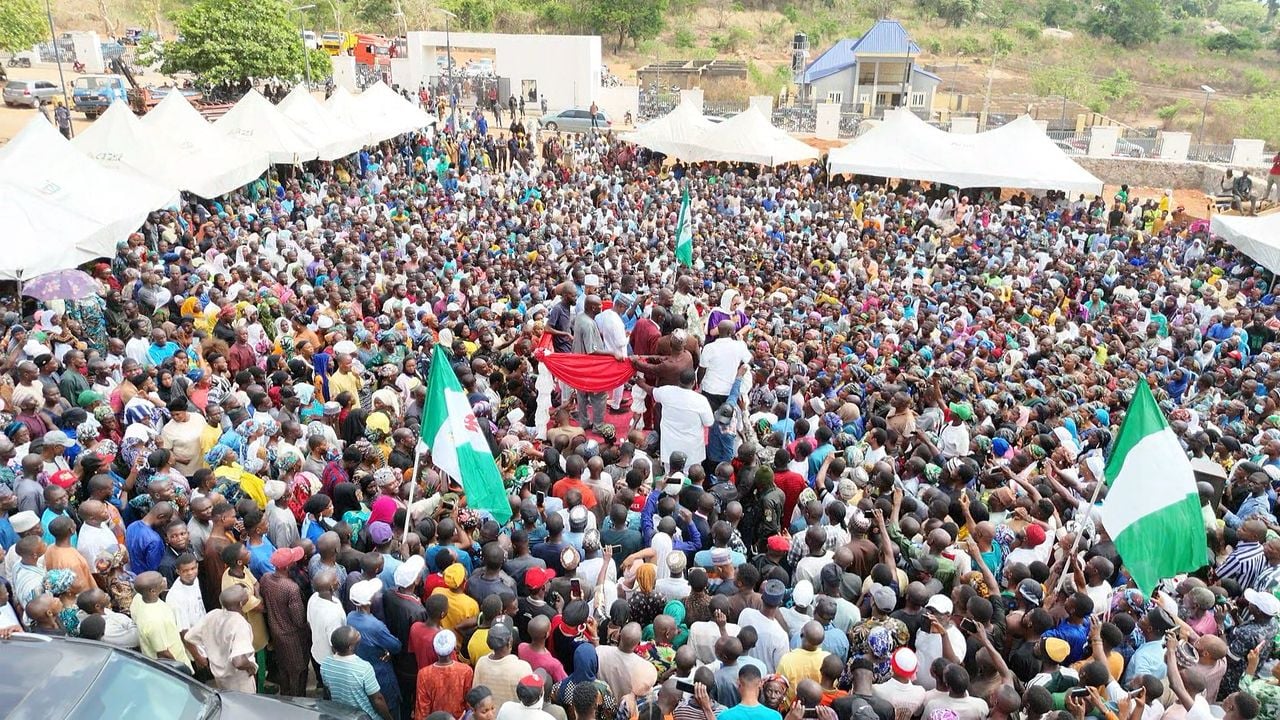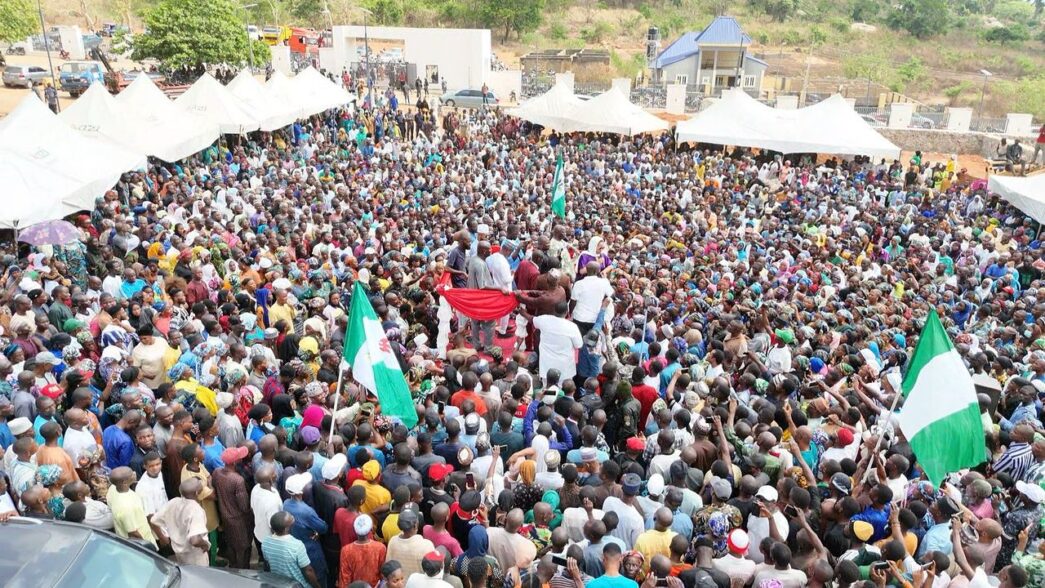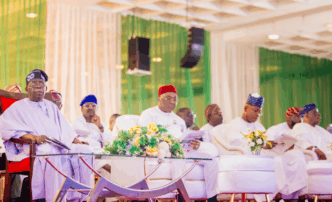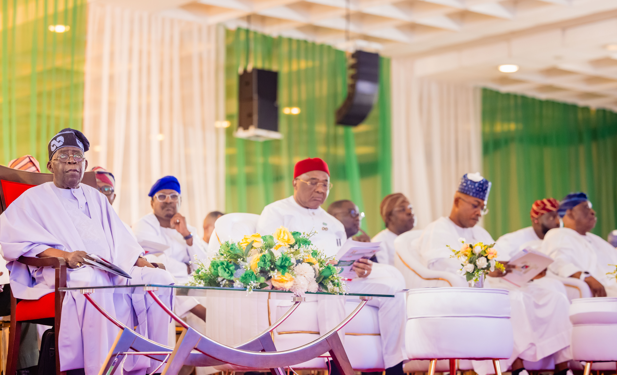BY LEKAN OLAYIWOLA
The hidden story beneath political party defections, factional chairmen, parallel conventions and court orders flying like arrows in a country where the struggle for power, rather than being linear, ideological, or about policy, is really about belonging, dignity, memory, fear, and the perpetual negotiation of who matters.
Since 1999, every major political party in Nigeria has lived inside one long repeating cycle: formation, hope, ascent, betrayal, fragmentation, collapse or reinvention. This is not a coincidence or culture. It is structure, and beneath that structure are emotions rarely addressed in political analyses: humiliation, exclusion, mistrust, and the fear of irrelevance.
The ongoing PDP crisis is not an isolated implosion, but the latest chapter in a 25-year national pattern: Nigeria’s political parties are not institutions, but temporary peace treaties between elites who fear each other. And peace treaties built on fear do not last.
Advertisement
The Hidden Architecture: Nigeria’s Politics as a Dignity War
Most people think political disputes in Nigeria are about money, power, zoning or ambition. Those elements matter but they are surface manifestations of something deeper. At the heart of every major party crisis since 1999 lies a simple but powerful psychological truth: Nigerian political elites are fighting to avoid humiliation. When one faction feels ignored or imposed upon, the conflict becomes existential.
A blocked ambition feels like a denial of personhood. A manipulated primary feels like a stain on one’s honour. A parallel congress becomes a revolt against invisibility. A defection becomes a migration toward regained relevance. This is why defections happen with almost ritual regularity: politicians leave not just because they want better prospects; they leave because their dignity has been wounded. This is the unspoken engine of Nigerian politics.
Advertisement
A Genealogy of Crises: How Each Party Repeats the Same Ancestral Pattern
To understand the present PDP crisis, one must excavate its ancestors. The AD/AC/ACN Transformation: The Yoruba Fragmentation Cycle where the old Alliance for Democracy began as a regional ideological fortress, then cracked under the weight of personal rivalries, accusations of betrayal in governorship primaries, and the iron politics of Lagos. It collapsed and reappeared as AC. Then rebirthed as ACN. Each transformation was not ideological; it was a recalibration of trauma.
The ANPP and the CPC: Northern Platforms as Temporary Havens. Both parties became shelters for northern elites who felt sidelined or disrespected within other structures. But internal fractures over leadership, Buhari’s growing stature, and regional balancing ensured that both parties were brittle. Their merger into APC was less a union of ideas and more a truce among previously wounded factions. And truces do not last forever.
APGA: (The Perpetually Haunted House). Every election cycle, APGA is reborn and re-fractured. Obi and Ojukwu’s legacy, Soludo’s emergence, Anambra godfather wars, parallel chairmen, court judgments show APGA as the perfect case study of what happens when party structures are personality-driven and grievances never heal.
Advertisement
The PDP: The Cathedral of Unresolved Memory. From 1999 to 2007, PDP was a colossus. But within its body were unresolved resentments; governors who felt controlled from Abuja, ambitious chieftains denied presidential tickets, regions feeling excluded by zoning breaches, state chapters treated as fiefdoms, and factions formed around powerful personalities who later became rebels. By 2013, all the suppressed resentments exploded; five governors defected, and the implosion propelled APC. The ongoing crisis — parallel conventions, leadership disputes, litigation — is simply the replay of unresolved structural trauma.
The APC: Victory without Institutionalisation. The APC was formed as a coalition of old grievances temporarily aligned against PDP dominance, a conflation of ACN’s wounded pride, CPC’s northern frustration, ANPP’s marginalisation and PDP defectors’ anger. APC routinely absorbs the frustrations of others but does not absorb their reconciliation.
The Five Recurring Patterns of Nigeria’s Party Crises
Across 25 years, five stable patterns emerge: (1)Parties don’t decay; they fracture suddenly. No Nigerian party slowly declines. They rupture at inflection points with a controversial primary, a broken zoning promise, an unpopular imposition, a leadership tussle, a judicial intervention, or a governor-centred clash. Parties collapse the way relationships collapse, not gradually, but all at once.
Advertisement
(2) Power is centralised, loyalty is fluid. Every party tries to centralise power in a small elite circle. But political actors feel suffocated and defect. Those defections weaken institutions further. This creates a loop from centralisation to resentment, rebellion, weaker structures and further centralisation.
(3) The courts become substitute party headquarters. Instead of internal dialogue, parties outsource disputes to courts. This results in “court-imposed” chairmen, contradictory judgments and state chapters paralysed by injunctions. The judiciary becomes the battlefield for wars that should have been mediated.
Advertisement
(4) New banners are not new ideas. Every time a party collapses and rebrands, it carries the old wounds into a new home. Nothing is healed, only renamed. Nigerian parties are like snakes shedding their skin but keeping the same venom. (5) Every party cycle mirrors Nigeria’s national governance cycle from fragmentation at the party level to fragmentation at the policy level, weak governance, disillusionment, populist surge and further fragmentation. Parties are a microcosm of the nation.
What This Means for Nigeria’s Democracy
Advertisement
A democracy cannot be stronger than the parties that run it. If parties are unstable, democracy is unstable. If parties are subservient to personalities, institutions weaken. If parties fragment, accountability collapses. If parties collapse, voters lose faith. Nigeria risks drifting into one-party dominance not because APC is invincible, but because other parties are imploding under the weight of their unresolved internal wars.
This trajectory threatens democratic competition, minority voice representation, the balancing of power, the legitimacy of elections, the stability of governance, and public trust in democracy itself. A democracy is only alive when its parties compete vigorously, ethically, and ideologically. Nigeria is losing that vitality year after year.
Advertisement
Stabilising Nigeria’s Party System
Parties that do not heal themselves cannot heal the country. To break the 25-year cycle, Nigerian parties must undergo a profound transformation; not cosmetic reforms, but deep structural and psychological shifts. A blueprint for a Dignity-Based Internal Democracy proposes that parties must adopt conduct transparent primaries, no imposition, respect for internal dissent, mechanisms to prevent humiliation, and restoration processes when violations occur. Politics is human. Dignity is the currency.
Conflict-transformation units in parties, mediation teams, early-warning systems, grievance hotlines, structured dialogue forums and reconciliation retreats should be prioritised above courts. Parties need internal healing rooms. Embrace inclusion as power-sharing, not decoration. Youth, women, and marginalised factions must have seats with actual influence. Inclusion reduces the humiliation that drives defections.
Structural Reforms are needed to enforce party constitutions, strengthen INEC oversight, punish parallel congresses and regulate defections through tighter constitutional interpretation. A multi-level party dialogue architecture can use top-tier elite negotiation, mid-tier networks of influencers bridging factions and grassroots member assemblies restoring trust. This is party-building as peacebuilding. Transformation is still possible. But it requires courage —not the courage to fight, but to reconcile.
Lekan Olayiwola is a peace & conflict researcher/policy analyst. He can be reached via [email protected]
Views expressed by contributors are strictly personal and not of TheCable.



